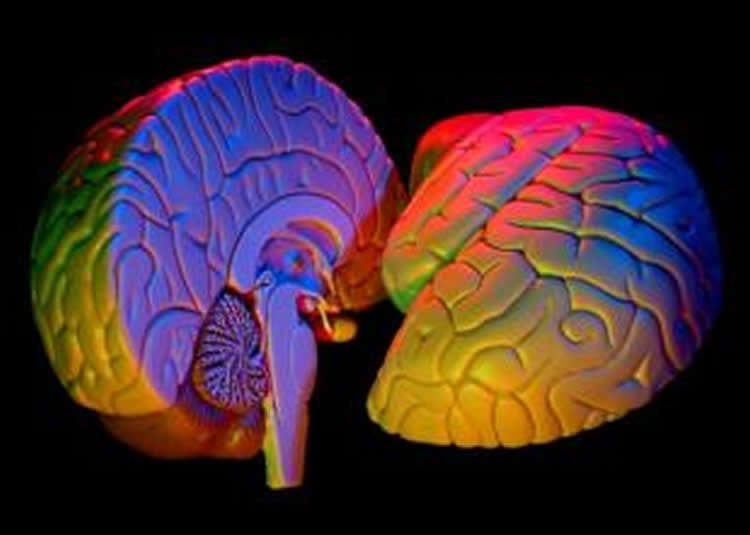Investigators at The Feinstein Institute for Medical Research have discovered that brain scans can be used to predict patients’ response to antipsychotic drug treatment. The findings are published online in the latest issue of The American Journal of Psychiatry.
Psychotic disorders, such as schizophrenia and bipolar disorder, are characterized by delusions, hallucinations, and disorganized thoughts and behavior. They are estimated to occur in up to three percent of the population and are a leading cause for disability worldwide. Psychotic episodes are currently treated with antipsychotic drugs, but this treatment is given without guidance from lab tests or brain scans, such as functional magnetic resonance imaging or functional MRI (fMRI). Doctors often use “trial-and-error” when choosing treatment for psychotic disorders, without knowing if patients will respond well. This lack of knowledge places a large burden on not only patients and their families, but also healthcare professionals and healthcare systems.
Led by Anil Malhotra, MD, director of psychiatry research at Zucker Hillside Hospital and an investigator at the Feinstein Institute, and Todd Lencz, PhD, associate investigator at the Zucker Hillside Hospital and the Feinstein Institute, researchers used fMRI scans obtained before treatment to predict ultimate response to medications in patients suffering from their first episode of schizophrenia. Connectivity patterns of a region of the brain called the striatum, which tends to be atypical in patients suffering from psychotic disorders, were used to create an index. This index significantly predicted if psychotic symptoms were decreased in the studies’ patients. What’s even more significant is that the researchers applied this index to confirm their results in a separate group of patients with more chronic illness – those who were hospitalized for psychotic symptoms. They found that treatment outcome could be predicted in the replication group as well.

“This study is the first to report a predictive fMRI-derived measure validated in an independent study group of patients treated with antipsychotics,” said Deepak Sarpal, MD, a lead author of the study. “The results we found from this study open the door for contemporary ‘precision medicine’ approaches to psychiatry, and more specifically, the use of fMRI scans as important players in the treatment of psychiatric disorders.”
Source: Emily Ng – The Feinstein Institute for Medical Research
Image Credit: The image is credited to The Feinstein Institute for Medical Research
Original Research: Abstract for “Baseline Striatal Functional Connectivity as a Predictor of Response to Antipsychotic Drug Treatment” by Deepak K. Sarpal, , M.D., Miklos Argyelan, , M.D., Delbert G. Robinson, , M.D., Philip R. Szeszko, , Ph.D., Katherine H. Karlsgodt, , Ph.D., Majnu John, , Ph.D., Noah Weissman, , B.A., Juan A. Gallego, , M.D, M.S., John M. Kane, , M.D., Todd Lencz, , Ph.D., and Anil K. Malhotra, , M.D. in American Journal of Psychiatry. Published online June 5 2015 doi:10.1176/appi.ajp.2015.14121571
Abstract
Baseline Striatal Functional Connectivity as a Predictor of Response to Antipsychotic Drug Treatment
Objective:
Clinical response to antipsychotic drug treatment is highly variable, yet prognostic biomarkers are lacking. The authors recently demonstrated that successful antipsychotic drug treatment alters resting-state functional connectivity of the striatum. The goal of the present study was to test whether intrinsic striatal connectivity patterns provide prognostic information and can serve as a potential biomarker of treatment response to antipsychotic drugs.
Method:
The authors used resting-state functional MRI (fMRI) to develop a prognostic index in a discovery cohort of 41 first-episode schizophrenia patients, then tested this index in an independent cohort of 40 newly hospitalized chronic patients with acute psychosis. In the discovery cohort, patients underwent resting-state fMRI scanning at the initiation of randomized controlled treatment with a second-generation antipsychotic. Whole-brain functional connectivity maps were generated for each subject from striatal seed regions. A stringent measure of clinical response was calculated that required sustained improvement over two consecutive study visits. Clinical response was entered into a survival analysis, and Cox regression was applied to the functional connectivity data. A striatal connectivity index was created, comprising functional connections of the striatum that predicted treatment response. This striatal connectivity index was tested on a generalizability cohort of patients with psychotic disorders who were hospitalized for an acute psychotic episode.
Results:
A total of 91 regions functionally connected with the striatum provided significant prognostic information. Connectivity in these regions was used to create a baseline striatal connectivity index that predicted response to antipsychotic treatment with high sensitivity and specificity in both the discovery and generalizability cohorts.
Conclusions:
These results provide evidence that individual differences in striatal functional connectivity predict response to antipsychotic drug treatment in acutely psychotic patients. With further development, this has the potential to serve as a prognostic biomarker with clinical utility and to reduce the overall burden associated with psychotic illnesses.
“Baseline Striatal Functional Connectivity as a Predictor of Response to Antipsychotic Drug Treatment” by Deepak K. Sarpal, , M.D., Miklos Argyelan, , M.D., Delbert G. Robinson, , M.D., Philip R. Szeszko, , Ph.D., Katherine H. Karlsgodt, , Ph.D., Majnu John, , Ph.D., Noah Weissman, , B.A., Juan A. Gallego, , M.D, M.S., John M. Kane, , M.D., Todd Lencz, , Ph.D., and Anil K. Malhotra, , M.D. in American Journal of Psychiatry. Published online June 5 2015 doi:10.1176/appi.ajp.2015.14121571







